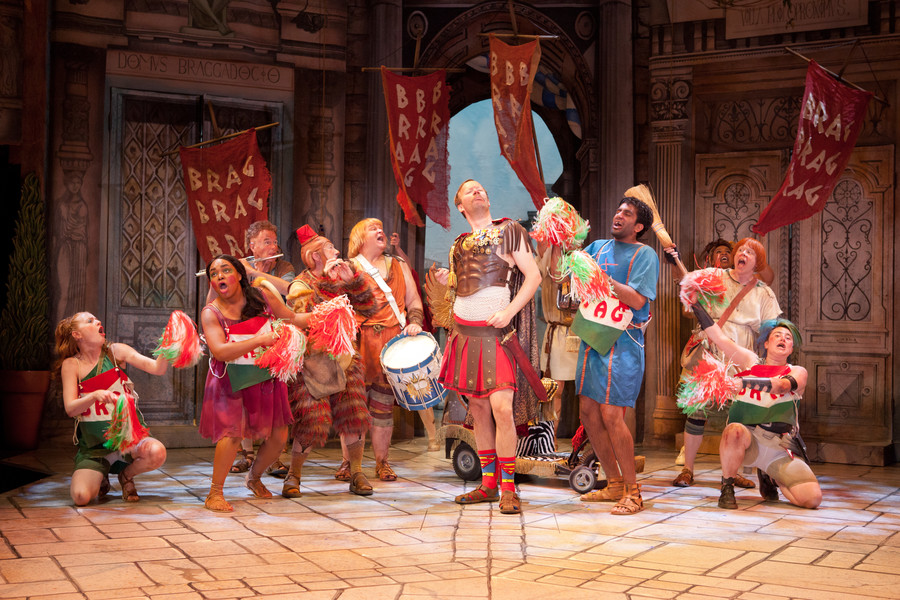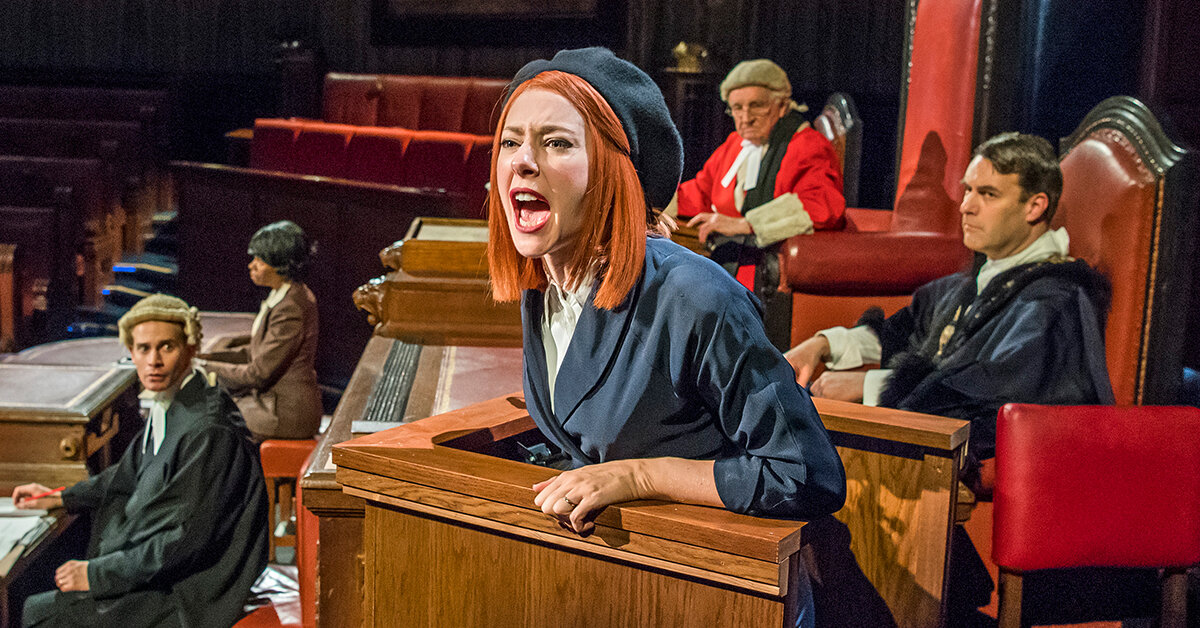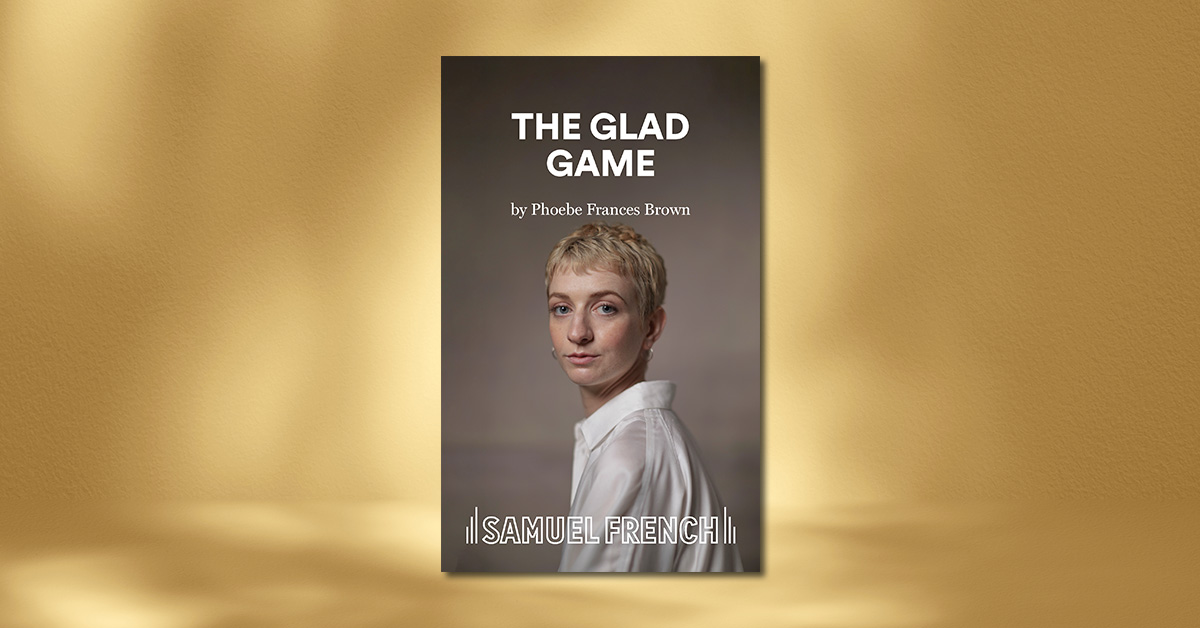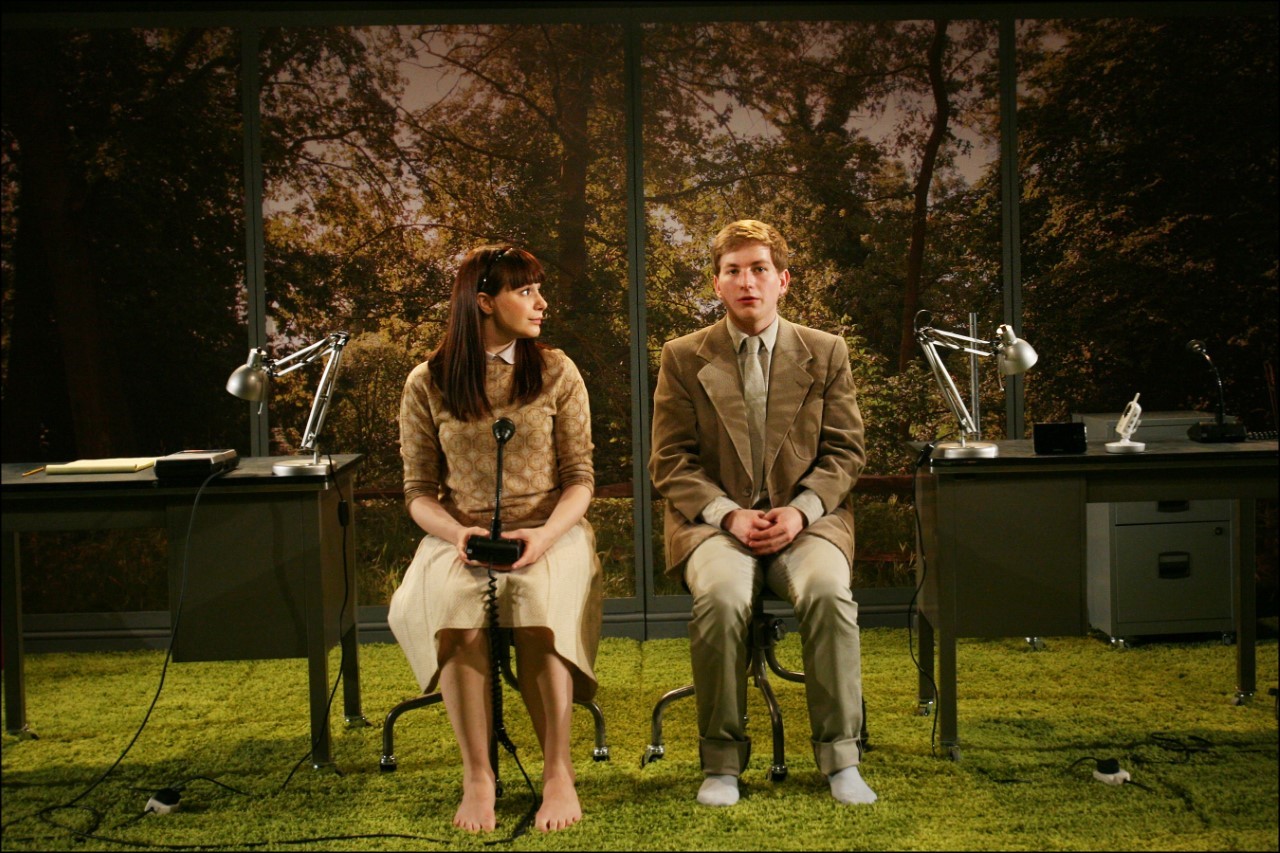
Phil Porter’s original plays include Vice Versa and The Christmas Truce for the RSC, and God of Chaos and The Man with the Hammer for Plymouth Theatre Royal. Blink, which was originally written for Soho Theatre and later described by The New York Times as “everything you want in a relationship play”, has been performed extensively around the world. We caught up with Phil about his creative writing process, how he went about updating a Roman comedy for contemporary audiences, and advice on staging his work.
Were you always interested in writing for the stage?
I was interested in being involved in the theatre from about the age of fourteen but I didn’t know I wanted to be a writer. When I was sixteen I started going to London to watch plays with a friend. We saw all kinds of great stuff – Théâtre de Complicite’s The Street Of Crocodiles, Peter Brook’s The Man Who, the original production of Patrick Marber’s Closer, a great production of Feydeau’s Le Dindon called An Absolute Turkey. This is when I really got interested in the way that stories are told. I studied Drama at Birmingham University where I was taught by some great playwrights including Olwen Wymark, Clare McIntyre and David Edgar.
What’s your writing process like?
These days I try to work a fairly normal nine-to-five day at least three days a week. The other two days I might be in meetings, auditions, workshops or rehearsals. I tend to multi-task quite a lot, with six or seven projects on the go at any one time. But I try not to work on more than one first draft at once as this is the really hard bit. I take every opportunity to hear my work read as that tends to speed up the process. I have no idea where ideas come from. For the first few years of my career I felt like I had all of my ideas when I was at university and that I was slowly working through them. But I’ve had a few new ones in recent years which is something of a relief.
Vice Versa, which premiered at the RSC in 2017, was inspired by the Roman comedies of Plautus. How did you work with the original material – did you start with your own idea, or was Plautus’ work your way into the world? What were the challenges of updating it for contemporary audiences?
The original brief was to write something funny that could be part of the Rome season. With the RSC’s brilliant literary department, I looked at some of Plautus’ plays as he is the natural first port-of-call for Roman comedy. We decided none of them would quite work as a straight adaptation – they’re mostly quite short and contain some satirical sections that have not aged as well as the characters and farcical situations. But we all felt Miles Gloriosus had great potential for us as a starting point, and that the ‘swaggering soldier’ at the centre of the play – an arrogant, creepy, mansplaining tyrant – would resonate with contemporary audiences. The main challenge was in striking the right tone, writing something that felt rude and anarchic without becoming facile or misogynistic.
Did you have a favourite moment in the RSC production?
I had many favourite moments – I miss it so much! But the opening of the second half was always great fun to watch. Here we hit the audience with two big ‘treats’ back-to-back – a daft, irrelevant, over-the-top number about Rome including every Roman cliché in the book, then an audaciously silly and pantomimic punning sequence. Together these two scenes would batter the audience into submission and win over any long-faced stragglers. I think they were especially effective because they combined two seemingly opposite qualities that are absolutely at the heart of this kind of comedy – knockabout, out-of-control playfulness and painstakingly-rehearsed, down-to-the-nanosecond precision.
Vice Versa looks like a lot of fun to perform, with puns galore and madcap characters. What advice would you give to companies looking to stage the show?
First, tell the story. It would be easy to get so distracted with executing the comic sequences that you forget to make sense of the story. If the audience fully understands the who, what, where and why of it, they will find it so much funnier. Second, give yourselves plenty of rehearsal time. To make the farcical sequences work – going in and out of the houses at the end of the first half, the food delivery, the ‘date’ – you’ll need to go at quite a lick. And that can only be done if they have been broken down into their many constituent parts and rehearsed fully. Third, be bold. When you talk to the audience you have to really talk to the audience, not just look in their general direction. And last but not least, have fun with it. Of course, this has to stop short of self-indulgence. But if your production truly embraces the playful, forgiving, cheeky nature of the play the audience will go with you.
In contrast to Vice Versa, your two-hander Blink is a smaller, intimate and more heartfelt comic drama about love. The play’s form is highly inventive and free, featuring direct audience address and open stage directions. Why was this choice of form effective for the story you wanted to tell?
I have always been interested in experimenting with form, ever since those early theatre experiences watching Peter Brook and Théâtre de Complicite. In particular, I’m interested in creating new or unusual structures that in some way express the themes or content of what I’m writing. The characters in Blink are quite naïve and instinctive so the form of the play is similarly naïve and instinctive. I didn’t really plan it out before writing in the way that I normally would. I knew the story I wanted to tell and had a sense of how the characters would express themselves. I tried to hand over the telling of the story to these inexperienced storytellers. This led to a higgledy-piggledy sort of structure, with theatrical conventions adopted or ditched as required along the way.
Do you have any suggestions for designers and directors about how to make a production of Blink their own?
I have no specific design suggestions. My only hope when I go to see a new production, which I do from time to time, is that it looks different from any production I’ve seen before. The best productions are those that have fully engaged with the question of why these characters are telling/performing their story. Addressing this question tends to give the production the kind of specificity that will make it more than the sum of its parts. I would also suggest that directors and designers don’t go too far in accentuating the inherent sweetness of the story. It is, I suppose, a kind of romantic comedy, but that doesn’t mean it is meant to be completely palatable throughout.
Are there particular writers, directors, theatremakers or comedians who have influenced the kind of work that you want to make?
I seem to write plays in quite different styles and my influences are accordingly quite eclectic. I am fascinated by the history of stage comedy and in writing a play like Vice Versa I am indebted not just to Plautus but other greats including Middleton, Molière and Feydeau. There are many playwrights whose work I love and return to – Beckett, Lorca, Chekhov. My plays look nothing like theirs (I wish they did) but I’m sure they have some indirect influence. In writing Blink I was as much influenced by the looping story structures created by contemporary stand-up comedians such as Stewart Lee as I was by any other playwrights.
Can you tell us what you’re working on next?
My next project is The Ofsted Massacre, a large cast comedy about an Ofsted inspection at a Further Education College in Sussex that goes more than slightly wrong. Students at LAMDA will perform it this summer and then I will try to find a professional production for it. This is a play I have been thinking about for a couple of years, so I am really excited to see how it works. And I am excited that it will be directed by Joe Murphy, director of the original production of Blink.
Buy the script for Blink and learn more about licensing the show.
Buy the script for Vice Versa and learn more about licensing the show.
Vice Versa: photo by Pete Le May © RSC. Design by Colin Richmond.

Heathers The Musical: 10 Facts for 10 Years

Agatha Christie’s Witness for the Prosecution: Meet the Characters


